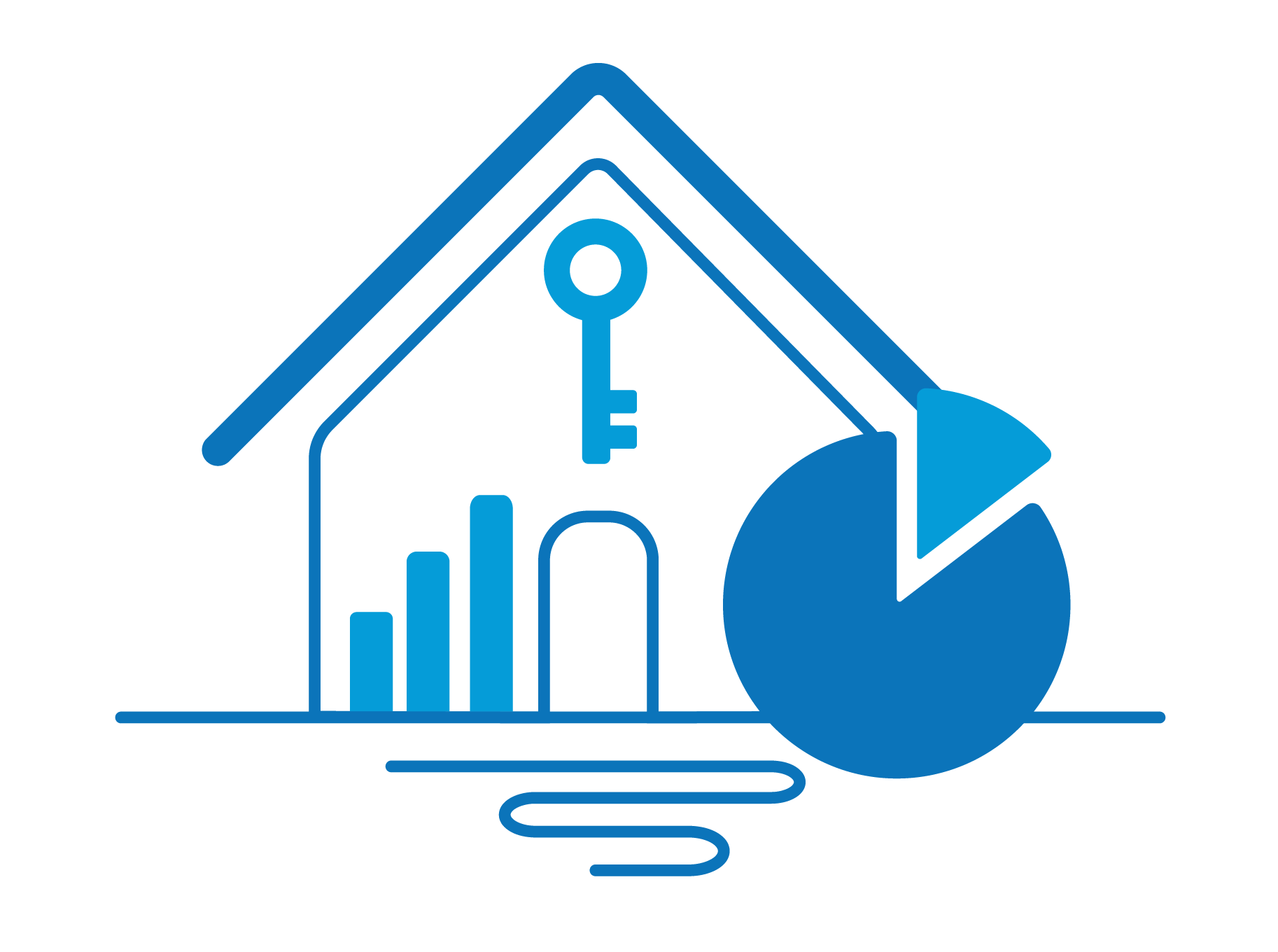Buy to Let Mortgage Guide
Are you looking for a buy to let mortgage? Whether you’re looking to move out of your home or you want to invest in the property market, this guide provides a breakdown of the factors you need to consider.

In this article

What is a Buy to Let Mortgage?

Consumer Buy to Let Mortgage

Business Buy to Let Mortgage

Buy to Let Mortgage Eligibility

Fluent Money: Specialist Buy to Let Mortgage Brokers

How a Buy to Let Mortgage is Different to other Types of Loans
What is a Buy to Let Mortgage?
A buy to let mortgage is a type of loan that you can use to purchase a property and then rent that property out to a tenant.
It is not to be confused with a residential mortgage, with a buy to let mortgage the property is not your home and you cannot live in it.
The nature of a buy to let mortgage is that it is deemed as a type of investment and it therefore has further key differences in comparison to a residential mortgage:
- They tend to have higher interest rates
- Higher deposits are usually required
- Lenders tend to offer buy to let interest only mortgages meaning that the monthly repayments will only repay the interest owed and the capital (initial amount of cash borrowed) will need to be paid at the end of the mortgage term. It is also important to have a clear plan of how you will pay the outstanding balance at the end of the mortgage term.

What Type of Buy to Let Mortgage do you need?
When you apply for a buy to let mortgage you will either apply as a consumer or a business. Your intent when applying for a buy to let mortgage will determine which category you will fall into.
Consumer Buy to Let Mortgage
If you decide to rent out your home for whatever reason and become an ‘accidental landlord’ you will probably fall into the consumer buy to let mortgage category. The mortgage will be in your personal name. Typical scenarios where you want to move out of your home are:
- Deciding to move into your partners house and live there
- Relocating to change jobs
- Going travelling
- Inheriting a property that you now want to live in
Consumer buy to let mortgages are similar to residential mortgages in the sense that they are regulated by the FCA and lenders have to follow the same guidelines they would with a residential mortgage.
Changing from a Residential to a Consumer Buy to Let Mortgage
If you do decide to move out of your property and rent it out to someone else, then you must notify your lender. You don’t want to get into a situation where you risk invalidating your mortgage contract by not notifying them, doing so could give the lender the right to ask you to repay your mortgage back at once.
Some lenders will allow you to let out your home during your residential mortgage for a short period of time, say 1 year. This is called a ‘consent to let’ facility. It is designed to be a temporary solution so you will not be able to keep asking for this service over consecutive years.
If you do decide to opt for a consent to let facility, then you will typically have to pay a higher interest rate. This is because most lenders will deem renting out your property a higher risk. After the consent to let period is over, you may be able to discuss with your lender the option of re-mortgaging to a buy to let mortgage if you would like to continue to let it out.
Let to Buy Mortgage Option
You may find yourself in a scenario where you want to rent out your current home and then purchase a new home to live in, this is sometimes called let to buy. In this situation you would apply for two mortgages at the same time:
- A buy to let mortgage on the property you’re moving out of
- A residential mortgage on the property you intend to buy as your home

Business Buy to Let Mortgage
If your intention is to purchase a property specifically to rent it out, then you will need to apply for a business buy to let mortgage. This type of mortgage is treated as a business loan and will be in the name of a limited company (which is also known as a Specific Purchase Vehicle).
The projected rental income is an important consideration of lenders in this scenario, and they will generally expect the rental income to be equivalent to at least 125% of your monthly repayments.
The number of properties you have let out can also affect your eligibility when applying for a new business buy to let mortgage. The more properties you let out, the higher the risk deemed by the lender you are applying to.
Get Buy to Let Mortgage Advice
Fluent Money are experts in buy to let mortgages whether you are a first time landlord or a more established landlord.

Buy to Let Mortgage Eligibility
A major difference between a buy to let mortgage and a residential mortgage is that your expected rental income is a major factor on determining your eligibility, not your salary. This means that there tends to be no upper age limit because your retirement date (when your salary ceases) doesn’t need to be factored into any repayment term considerations. On the other hand, there does tend to be a lower age limit with most lenders putting the minimum age of 25 for applications.
Usually, lenders will also put a minimum requirement on the property value of a buy to let. In our experience lenders typically won’t lend on properties worth £40,000 or less and some won’t go below £100,000.
There can also be limitations on the type of property, for example some lenders deem certain property types a higher risk. Examples can include flats in a block over 4 floors with no lift, flats in high rise concrete blocks, thatched properties, and properties with external cladding.
Some of the major high street lenders will also not accept properties that have multiple tenancies, bedsits, homes of multiple occupancy (house shares), ‘Related Person’ tenants such as husbands, wives, civil partners, siblings, parents, and grandparents. Buy to let mortgages for holiday lets are typically not accepted with most major high street lenders because they often require letting contracts to be a minimum term of 6 months.
Criteria for a buy to let can sometimes be complex however you can contact Fluent Money and speak to a dedicated mortgage adviser who will be able to talk through your eligibility in more detail. They are always up to date with the specific criteria of the providers on our lending panel and can therefore advise you accordingly.
Buy to Let Costs
You must also take into account other bills that will be associated with your buy to let property. Some of these will be one off, ad hoc costs and some will be ongoing. Fees that you may need to consider are:
- Having a back up plan for if the property becomes vacant from time to time
- Maintenance fees
- Insurance fees
- Agent fees
Buy to Let Mortgage – Responsibilities as a Landlord
As a landlord you are required to adhere to specific standards and regulations. These cover important areas such as:
- Meeting safety standards
- Obtaining an Energy Performance Certificate
- Certificates for gas and electric
- Right to rent checks
- Deposit protection
- Repairs
You will need to research these areas to gain a thorough understanding of what is required from yourself as a landlord.
Fees for a Buy to Let Mortgage
There are the standard fees to consider that are standard with any mortgage such as:
- Arrangement fees
- Valuation fees
- Property survey costs
- Conveyancing fees
- Legal fees
- Money transfer fees
- Land registry fees
- Deposit – a minimum of 25% is usually required
- Stamp duty – this is a higher rate than a residential house purchase
- Capital gains tax – this may be applicable to income and the sale of the property if you decide to sell it
- Income tax – rent is treated as a taxable income
Fluent Money – Specialist Brokers in Buy to Let Mortgages
Fluent Money have a dedicated team of experts that specialise in the buy to let mortgage market. Whether you are a first-time landlord or looking to build a property portfolio, Fluent Money will apply their expertise to negotiate suitable, competitive buy to let mortgage rates on your behalf.
In the buy to let mortgage market, often the most cost-effective deals are only accessible via mortgage brokers such as Fluent Money.
Since 2015, the buy to let mortgage sector has accounted for approximately less than 25% of the total mortgage market share. With lower volumes of cases, it means that not all major high street lenders offer such facilities. The market is made up of a large proportion of specialist lenders because applications for buy to let mortgages have more varying factors than standard mortgages. The added complexity of a buy to let mortgage means they cannot easily be put through the same automated processes as more mainstream mortgages.

Get Buy to Let Mortgage Advice
Our Buy to Let Mortgage Specialists are here to discuss your circumstances and find you a competitive Buy to Let Mortgage.
How a Buy to Let Mortgage is Different to other types of Loans
Buy to let and traditional mortgage differences
A traditional mortgage is a loan that you would take out to purchase your home, meaning that you intend to live in it. It is not considered a type of investment by lenders, traditional mortgages tend to have lower rates of interest and are regulated by the FCA.
Buy to let mortgage and secured loan differences
A secured loan is different from a buy to let mortgage. A buy to let mortgage will always be the primary mortgage on a property as it is linked to paying the money back that is used to ‘purchase’ a property. Even if you end up an accidental landlord you are still switching your mortgage from a traditional mortgage to a buy to let. A secured loan is a secondary mortgage that if taken out, will be after the primary mortgage.
Buy to let mortgages and equity release differences
An Equity Release Plan is a loan that based on the value of the equity within your home. It is often used by people who want to stay in their own home and don’t want to relocate. There is a minimum age required for equity release plans, you have to be aged 55 or over. Typically people who take out equity release plans do so to release cash to pay for things like home improvements, helping younger family members in ways such as to get on the property ladder or to enjoy retirement in the earlier years. Most plans are designed to repay back the loan at some point in the future.
Buy to let mortgage and bridging loan differences
A bridging loan can also be used to purchase a property for investment purposes however the main difference between a buy to let mortgage and a bridging loan is that a bridging loan is designed to be paid back in the short term. People who take out a bridging loan would normally pay the money back to the lender within 12 to 24 months. They are designed to ‘bridge’ a gap in cash flow for an interim moment. A bridging loan and buy to let mortgage are sometimes used consecutively, for example you may use a bridging loan to pay for a house that is for sale via auction. Once you have purchased the property and carried out any renovations or home improvements , you may then apply for a buy to let mortgage on the property which can then be used to pay off the bridging loan.
Why choose Fluent Money®?

We’re 5 star TrustPilot rated
Find out what our customers say about us

We’re friendly UK-based loan experts
You’ll be assigned a dedicated case manager to help deal with your application from beginning to end

We’ll keep you in the picture
You can check your application and loan progress 24/7 with our industry-leading smartphone app

We present you with options, not problems
Our many years’ experience means our friendly experts know how to find the right loan for you

Why our customers recommend Fluent Money®
We’re one of the UK’s favourite finance brokers. Don’t believe us? See what our customers have to say:
Want to find out more?
Speak to our dedicated buy to let mortgage specialists who will be able to help with any questions you may have.
